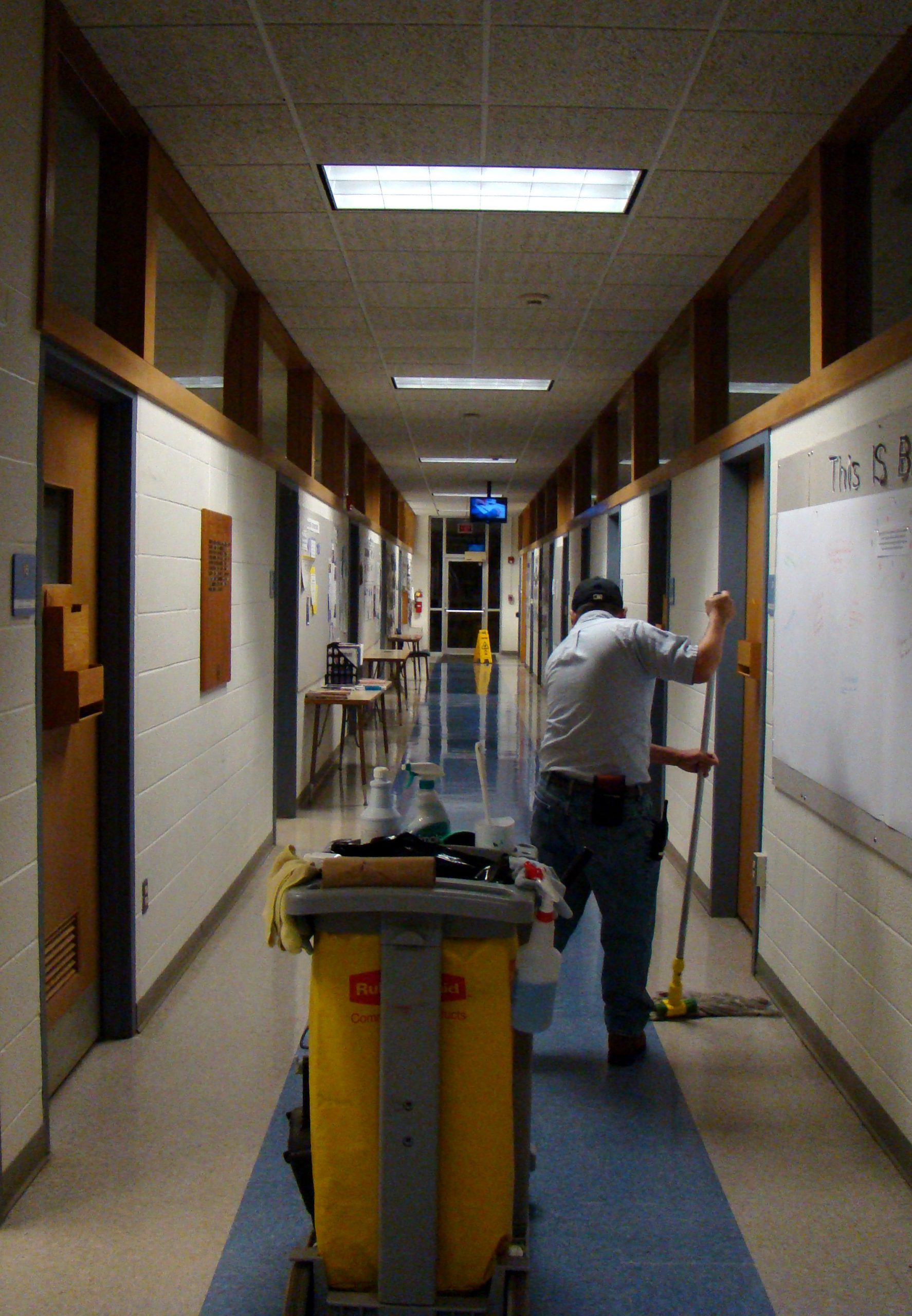Cleaning Goshen College is hard work.
20 buildings, 81 classrooms and 117 restrooms with a total of 265 toilets — 11 custodians clean them all, every day.Tables, whiteboards, floors, windows and bathrooms are central to living and learning on campus, but the people who clean them work behind the scenes.
Christy Farley, custodial supervisor, said that much of what the custodians do goes unnoticed until something doesn’t get cleaned, either because a custodian is absent or because an emergency cleanup draws custodians away from other areas.
“When things don’t get done, people notice,” said Farley.
But almost always, things do get done.
On Monday at 5 a.m., like every weekday, 11 custodial workers spread out across campus to begin cleaning. And, like every weekday, they worked until 1:30 p.m., stopping for a 15-minute break at 9:00 and a 45-minute lunch at 11:00.
Two custodians, Eddie Mayorga and Ernesto Gonzales, began with Newcomer Center. Mayorga cleaned the bathrooms while Gonzales wiped whiteboards and tables in the classrooms.
Mayorga cleans bathrooms with the speed of 20 years’ experience. Spray and scrub the toilets and sinks, Clorox the counter and Windex the mirror, wipe with a microfiber towel, empty the trash, replace the bag, check the soap and paper towel dispensers and mop the floor. It’s all done in a matter of minutes.
Once the bathrooms were clean and the classrooms vacuumed, Mayorga and Gonzalez paired up to clean the floors. Gonzales made the first pass with the dust mop and Mayorga followed up with the wet mop. They finished at 6:30 a.m. and moved on to the Union to repeat the process.
Mayorga, Gonzales and the other custodians prime the campus for learning while most of the college is still asleep.
When big messes happen, custodians drop what they’re doing to take care of it.
“Some messes aren’t a big deal,” Farley said, but “some are what nightmares are made of.”
Four or five years ago, Farley was cleaning the Church-Chapel when she got a call from another custodian about a situation in the bathrooms by the outdoor track. Farley opened the door to the men’s room to find the walls smeared with human feces.
“It was just vile,” said Farley.
The custodians wore full-body Tyvek suits and masks to clean the room.
From nightmarish messes to everyday stains and smudges, the custodial team’s work allows learning to happen.
“I think it’s important to recognize the people who make where we live, work and learn a safe and appealing environment,” Farley said.
“We make an effort so that everyone feels good,” said Gonzales. “That’s our work.”
Evra Tshisola, another custodian, agrees. A campus can only function with all of its members working together, he said.
“In a society, not all of us can be teachers or presidents,” Tshisola said. “We need everybody here.”
Many in the campus community appreciate that need.
“We do have both faculty and students thank us for the work we do,” said Farley.
In addition to saying thanks, there are plenty of small ways to show appreciation for custodial work.
Dump out liquids before throwing a cup in the trash to prevent dripping trash bags.
Wipe shoes to keep the floors clean.
With glass doors, use the handles instead of leaving an oily handprint on the glass.
“We have to be tidy,” Mayorga said. “All of us.”



